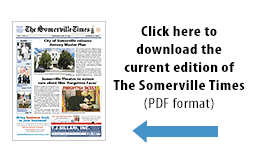Senator Edward Markey (D–Mass) will join dozens of local supporters of the Fair Share Amendment to launch the Somerville campaign for the statewide ballot question today, Sunday May 15. Teams of Fair Share advocates will be canvassing the Somerville’s neighborhoods and speaking directly to voters.
Senator Markey and the Somerville Fair Share team join hundreds of activists in several communities across the state who support the proposed state tax on annual incomes above $1 million that will appear on the November 2022 statewide ballot.
WHO
Senator Edward Markey and local Somerville supporters of the Fair Share Amendment
WHAT
Door-to-door neighborhood canvass
WHEN
Sunday, May 15, 2022 at 11:00 AM
WHERE
Argenziano School (290 Washington Street, Somerville MA)
This fall, voters have the historic opportunity to make our tax system fairer and provide funding to improve our schools, roads, bridges, and public transportation. The Fair Share Amendment on the November ballot will allow Massachusetts to improve our transportation and public education systems by making the very rich pay their fair share.
The ballot question would create a 4 percent tax on annual income above $1 million and dedicate the funds raised to transportation and public education. Only people who earn more than $1 million annually will be impacted; 99% of us won’t pay a penny more. And we’ll all benefit from better schools, roads, bridges, and public transportation.















There is no fairness in this so-called “Fair Share” initiative. The hidden agenda is to change the state constitution so that different discriminatory tax rates can be applied to different economic classes. Under the current system, somebody who earns twice as much as someone else pays twice the tax, someone who makes five times as much pays five times more tax, etc. Surely appears to be a fair tax. In fact, it’s so fair that it was written into the state’s constitution.
If this new tax law passes, the taxers will have an easier way to increase tax rates by only applying the increased rate to certain economic classes, thereby hoping to decrease voter resistance by only focusing on increasing the rate upon one group at a time. While this current proposal has a nice populace phrase by calling it a millionaire tax, the new law could be used to later apply a different tax rate only upon those making over $200,00 a year, and then only upon those making over $100,000 a year.
Inflation needs to be taken into account. Over time more and more people and families will reach the $1 million threshold and get hit with a higher tax. There is already a precedent for this. In 1969 the Alternative Minimum Tax was created to increase taxes on high-income families earning more than $30,000. Within a few years, especially the high inflation rate period during the late 1970’s and early 1980’s, more and more families started getting hit with this tax that “would only impact the wealthy.”
Inflation also leads to an unfair tax burden as many gains, such as stock values, dividends, home values, and other values tend to rise in proportion to the inflation rate. For example, with the current rate of inflation now at 8%, a 5% gain in value is taxed as a gain, when in reality there is a loss of 3% in relative value. If we want fairness in our tax system, capital gains taxes and the tax rate on interests need to include adjustments for inflation.